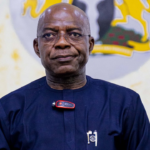
Real estate stakeholders at the 17th edition of the Africa International Housing Show have urged the government to implement policies that tackle the country’s housing challenges. DAMILOLA AINA writes on the fallout of the show
The 56 million housing shortage in Africa is a significant issue that has raised concern among stakeholders. The worry is further compounded by the United Nations’ projection that the continent’s urban residents would increase to 1.5 billion by 2050, and that Africa will pass the tipping point of 50 per cent urban population around 2035.
There are numerous reasons that have been given for the continent’s massive housing shortage. They include lack of access to funds, landownership, poor government housing policies, among others.
Many investors in the real estate sector focus on luxury buildings for high-income earners, leaving low- and medium-income earners to struggle with housing shortages.
Africa’s ballooning population has not also helped matters. According to Microtrends, the continent’s population currently grows at 2.37 per cent annually. It claims that Africa’s population currently stands at 1.46 billion. However, its economy only grew by 3.8 per cent last year and has been projected to grow by 4.1 per cent in 2023-24, according to the African Development Bank.
Though, the Chief Executive Officer of Financial Derivative Company, Bismarck Rewane, expects 5.2 per cent in 2023, the growth does not reflect the large size of the country’s housing market. The country is still grappling with a huge unmet housing demand due to challenges that include a lack of good policies and coordinated leadership.
Despite the challenges bedevilling the sector, experts have argued that housing could be used as a catalyst for the country’s economic development.
The International Human Rights Commission claimed more than 28 million Nigerians lack access to decent and affordable housing. Similarly, the Federal Mortgage Bank of Nigeria has stated that the country has at least 28 million housing gaps.
The country’s housing shortage has worsened from 7 million housing units in 1991 to 28 million housing units last year.
To help address this challenge, the Chief Executive Officer of the African International Housing Show, Festus Adebayo, gathered captains of industry, notable brands and housing professionals to converge in Abuja to brainstorm ideas on affordable housing and drive the implementation of relevant policies and actions that will drive the growth of the sector.
The conference themed “Beyond Rhetoric to Homes: Making Housing Happen,” was fully honoured by diverse representatives and professionals cut across 15 countries in Africa with over 400 exhibitors.
According to the organisers, the Africa International Housing Show is a multinational conference that brings together professionals and organisations from various sectors of the real estate industry, serving as a platform for networking, knowledge sharing, and collaboration among industry leaders, promoting best practices and innovation in real estate.
Adebayo said AIHS was a practical platform for providing solutions to problems affecting the sector through discussions and interactions with relevant stakeholders, professional bodies and leaders involved in the political space on the issue of housing, setting an agenda for the newly-elected government on policy formulation.
A first-time participant from the Gambia, Chief Executive Officer, TAF Africa Global, Mustapha Njie, confessed to the quality of the deliberations and in-depth knowledge of speakers gathered from 15 countries. “In conclusion, I want to assure myself that I will never miss this annual event again,” he told journalists.
At the opening ceremony, politicians, managing directors and CEO of Real estate firms, took turns to appraise the leadership of convener Festus Adebayo and council members for sticking to the event for 17 years. They lauded their efforts towards the advancement of the continent’s housing sector.
The event was declared open by the Senate president, Senator Godswill Akpabio and Deputy Speaker for the House of Representatives, Honourable Benjamin Kalu, who was represented by the Senator representing Cross River South Senatorial District, Senator Asuquo Ekpenyong and the chief of staff, Toby Okechukwu, respectively.
Experts canvasses data gathering
Participants at the summit examined Goal 11 of the United Nations Sustainable Development Goals, which focuses on member countries’ ability to attain an inclusive-led housing target, including the making of safe, resilient and sustainable cities and human settlements that can accommodate all.
The world’s target by 2030 is to “ensure access for all adequate, safe and affordable housing and basic services and upgrade slums and support the least developed countries through financial and technical assistance in the building of sustainable and resilient buildings, utilising local materials”.
However, for Nigeria, lack of access to data poses a significant deficiency to the country’s sector. Stakeholders have argued that the unavailability of housing data had made planning difficult in the real estate sector.
The country last had a population census in 2006. It was supposed to conduct the exercise every decade, but it has failed to do so in the last 17 years. This has created a data gap in the real estate sector. The government planned a population and housing census for March but due to the general elections, it has been put forward indefinitely.
The Managing Director of the Federal Mortgage Bank of Nigeria, Madu Hamman, stated that housing data is a critical investment for the housing and mortgage sector to drive policy ideation.
He lamented, “We don’t have a verifiable source of data or information across the housing sector and mortgage financing sector in the country.”
“Data is more critical for the housing and mortgage sector. A lot of data within our system can’t be shared because there have been no empirical investigations to arrive at data that is widely across various meetings across the country.”
Similarly, the Managing Director of Nigeria Mortgage Refinance Company, Kehinde Ogundimu, tasked stakeholders in the housing sector to collaborate towards developing reliable housing data for the adequacy of homes in the country.
“Data is arguably the most crucial commodity in today’s world; it has become a new currency. This is why at NMRC we take data very seriously, as it is essential for addressing significant needs and we are actively engaging with stakeholders on the Nigeria Real Estate Data Collation Programme and the development of a Housing Data Centre.”
For the Executive Director, Centre for Affordable Housing Finance in Africa, Kecia Rust, data is essential to feel the pulse and movement of the current trends in the industry.
“It is impossible to mobilise investors if we can’t tell them what will happen with their money and we can’t predict what will happen if we don’t have data. We have to understand the pulse and movement of the housing sector.”
Stakeholders who spoke at the summit called on governments and private across the African continent to implement policies that make data available for housing development.
The PUNCH reports that at the end of the sessions discussed on the first day of the event, a memorandum of understanding was signed between the National Population Commission, Central Bank of Nigeria, National Bureau of Statistics, Federal Mortgage Bank of Nigeria and the Nigeria Mortgage Refinance Company on data collection and sharing between the agencies for better policy formulation.
A total of 27 technical sessions with more than 32 speakers debating housing policies on affordable housing, the effect of climate change on housing, green investments, rethinking housing financing through the use of mortgages, proper regulations, local sourcing of raw materials and issues relating to building collapse, amongst others.
The exhaustive sessions reached a peak on the third day of the event with a masterclass powered by the University of Lagos themed “Making Housing Happen: African Cities between Infrastructure, resilience and Informality”.
The close-out workshop was well attended by professors from not less than eight universities. At the master class, the experts from different African universities discussed climate change, energy conservation and green building, Construction Management and Business, and navigating land matters.
The event also witnessed corporate presentations from top construction companies such as Dangote Cement, West Africa Ceramics, Nigerite, Berger Paint, and CDK Integrated amongst others.
Another side attraction was the professionals connect under a platform called U-40 Entrepreneurs designed to rise a new generation of leaders in the real estate sector, engineering, architecture, and town planning, who will believe in working together and not be in rivalry.
Speaking with PUNCH, the convener stated that to avoid rhetoric, the AIHS is setting up a Policy Advocacy Development Follow-up Group to raise issues discussed at the forum with the National Assembly Committee on Housing to ensure that all outstanding bills in the National Assembly are looked into.
He added that the housing sector was ready to become the fastest-growing contributor to the nation’s GDP with notable manifestation in every section of the industry to make housing happen beyond the rhetoric.





